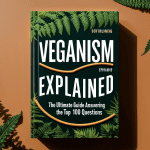Improving Your Dog Food Nutrition Formula/Recipe
Creating a balanced vegetarian diet for dogs requires careful consideration of essential nutrients. Here’s a guide to ensure your dog receives optimal nutrition through a vegetarian diet.
Essential Nutrients for Vegetarian Dog Food
Protein:
- Dogs need adequate protein for muscle maintenance and overall health. Essential amino acids must be included, which can be sourced from:
- Legumes: Lentils, chickpeas, and beans.
- Soy Products: Tofu and tempeh.
- Grains: Quinoa and oats.
Fat:
- Healthy fats are crucial for skin and coat health. Sources include:
- Plant Oils: Flaxseed oil, hemp seed oil, and olive oil.
- Seeds: Chia seeds and flaxseeds.
Carbohydrates:
- Provide energy and fiber. Good sources include:
- Whole Grains: Brown rice, barley, and oats.
- Vegetables: Sweet potatoes, carrots, and peas.
Calcium:
- Vital for bone health. Plant-based sources include:
- Leafy Greens: Kale, collard greens, and spinach.
- Fortified Foods: Calcium-fortified plant milks or supplements.
Vitamins and Minerals:
- Ensure a variety of fruits and vegetables are included to meet vitamin needs (e.g., vitamin A from carrots, vitamin C from spinach).
Fiber:
- Important for digestive health. Sources include:
- Vegetables: Carrots, peas, and pumpkin.
- Whole Grains: Oats and brown rice.
How to Ensure Your Dog Gets Enough Protein on a Vegetarian Diet
To ensure your dog receives enough protein:
- Combine different plant proteins to provide a complete amino acid profile (e.g., mixing lentils with rice).
- Include high-protein ingredients like chickpeas and quinoa in their meals.
- Consider adding nutritional yeast, which is high in protein and fortified with vitamin B12.
Best Plant-Based Sources of Calcium for Dogs
Leafy Greens:
- Kale
- Collard greens
- Spinach
- Fortified Plant Milks:
- Almond milk (ensure it’s unsweetened)
- Soy milk
Tofu:
- Calcium-set tofu is an excellent source.
Chia Seeds:
- These seeds are not only high in omega-3s but also provide calcium.
Balancing the Fat Content in Vegetarian Dog Food
To balance fat content:
- Use healthy oils like olive oil or flaxseed oil in moderation to provide essential fatty acids.
- Monitor the total fat content by calculating the proportion of oils used relative to other ingredients.
- Aim for a balanced ratio of omega-3 to omega-6 fatty acids by including sources like flaxseeds (high in omega-3) alongside grains (which may contain omega-6).
Using Canned Vegetables in Vegetarian Dog Food Recipes
Yes, you can use canned vegetables in vegetarian dog food recipes; however, consider the following:
- Choose low-sodium or no-salt-added options to avoid excess sodium intake.
- Rinse canned vegetables thoroughly before use to reduce sodium levels further.
- Ensure that the canned vegetables do not contain any additives or preservatives that may be harmful to dogs.
Vegetarian Dog Food Recipe
Lentil & Vegetable Stew
Ingredients:
- 1 cup lentils (cooked)
- 1 cup shredded tofu
- 2 medium potatoes (diced)
- 2 carrots (diced)
- 1 cup green peas (fresh or frozen)
- 2 cups vegetable broth (low sodium)
- 2 tablespoons olive oil
- 1 tablespoon nutritional yeast
- Fresh parsley (for garnish)
Instructions:
- Cook Lentils: In a pot, combine lentils with water and simmer until tender (about 30 minutes).
- Prepare Vegetables: In another pot, add diced potatoes, carrots, and vegetable broth. Cook until vegetables are tender.
- Combine Ingredients: Add cooked lentils and green peas to the vegetable pot along with shredded tofu.
- Seasoning: Stir in olive oil and nutritional yeast for added flavor and nutrients.
- Serve Warm: Allow the stew to cool before serving it to your dog; garnish with fresh parsley if desired.
Adding Omega-3 Fatty Acids to Vegetarian Dog Food
Incorporating omega-3 fatty acids into a vegetarian dog diet is crucial for maintaining skin health, reducing inflammation, and supporting overall well-being. Here are some effective ways to add omega-3s:
- Flaxseed: Ground flaxseed is a rich source of alpha-linolenic acid (ALA), a type of omega-3 fatty acid. It can be easily mixed into your dog’s food. Start with small amounts (1/4 teaspoon for small dogs, up to 1 tablespoon for larger breeds) and adjust as needed.
- Chia Seeds: These tiny seeds are packed with omega-3s and can be added whole to your dog’s meals. They also provide fiber and protein, making them a nutritious addition.
- Algal Oil: A sustainable plant-based source of DHA (docosahexaenoic acid) and EPA (eicosapentaenoic acid), algal oil is derived from algae and can be found in supplement form. It’s an excellent alternative to fish oil.
- Ahiflower Oil: This oil, derived from the Buglossoides arvensis plant, contains both omega-3 and omega-6 fatty acids. It has been shown to improve palatability in dog food while providing essential fatty acids.
- Hemp Seed Oil: Rich in omega-3 and omega-6 fatty acids, hemp seed oil can be drizzled over your dog’s food for added nutrition.
Benefits of Spirulina for Dogs
Spirulina is a blue-green algae that offers numerous health benefits for dogs:
- High Protein Content: Spirulina is about 60-70% protein, making it an excellent supplement for vegetarian diets.
- Rich in Nutrients: It contains vitamins B1, B2, B3, B6, B9, C, D, E, and K, along with essential minerals like iron and magnesium.
- Antioxidant Properties: Spirulina is packed with antioxidants that help combat oxidative stress and support immune health.
- Supports Digestion: The high fiber content aids in digestion and promotes gut health.
Ensuring Adequate Vitamin D on a Vegetarian Diet
Vitamin D is essential for calcium absorption and bone health. To ensure your dog gets enough vitamin D on a vegetarian diet:
- Sunlight Exposure: Encourage outdoor playtime to allow your dog to synthesize vitamin D through sunlight.
- Fortified Foods: Look for vegetarian dog foods that are fortified with vitamin D.
- Supplements: Consult your veterinarian about adding a vitamin D supplement specifically formulated for dogs.
Using Coconut Oil as a Fat Source in Vegetarian Dog Food
Coconut oil can be used as a fat source in vegetarian dog food due to its numerous benefits:
- Medium-Chain Triglycerides (MCTs): Coconut oil contains MCTs that provide quick energy and may help improve cognitive function.
- Skin Health: It can promote healthy skin and coat when included in the diet or applied topically.
- Digestive Health: Coconut oil may aid digestion and help with nutrient absorption.
When incorporating coconut oil into your dog’s diet, start with small amounts (1/4 teaspoon for small dogs to 1 tablespoon for larger dogs) and monitor for any digestive issues.
Comparing Ahiflower to Flaxseed and Chia Seeds in Terms of Omega-3 Content
Ahiflower oil, derived from the seeds of the Buglossoides arvensis plant, has gained attention as a potent source of omega-3 fatty acids, particularly for vegetarian diets. Here’s how it compares to flaxseed and chia seeds:
- Omega-3 Composition:
- Ahiflower Oil: Contains a unique profile with high levels of stearidonic acid (SDA), which is more efficiently converted into eicosapentaenoic acid (EPA) compared to alpha-linolenic acid (ALA) found in flaxseed and chia seeds. This makes Ahiflower a more effective source for increasing EPA levels in the body.
- Flaxseed: Primarily provides ALA, which must be converted to EPA and DHA in the body. This conversion rate is relatively low, making flaxseed less effective for direct omega-3 supplementation.
- Chia Seeds: Like flaxseed, chia seeds are rich in ALA but also have a low conversion rate to EPA and DHA. They are beneficial for fiber and other nutrients but do not match the efficiency of Ahiflower oil.
- Palatability: Studies indicate that dogs often prefer Ahiflower oil over flaxseed oil and other sources, making it an appealing choice for pet owners looking to enhance their dog’s diet without compromising taste [2].
Mixing Different Plant-Based Omega-3 Sources
Yes, you can mix different plant-based omega-3 sources to enhance your dog’s diet. Combining sources like Ahiflower oil, flaxseed, and chia seeds can provide a broader spectrum of omega-3 fatty acids. This diversification helps ensure that your dog receives various nutrients while also improving palatability and texture in their meals. However, it’s important to monitor your dog’s response to these combinations and adjust portions accordingly.
Potential Side Effects of Ground Flaxseed or Chia Seeds
While ground flaxseed and chia seeds are generally safe for dogs, there are potential side effects to be aware of:
- Digestive Issues: Introducing high amounts too quickly can lead to gastrointestinal upset, including diarrhea or bloating. It’s best to start with small quantities and gradually increase.
- Caloric Intake: Both seeds are calorie-dense; excessive amounts can contribute to weight gain if not accounted for in the overall diet.
- Nutrient Absorption: High fiber content may affect the absorption of certain nutrients if consumed in large quantities.
- Allergic Reactions: Although rare, some dogs may have allergies or sensitivities to flaxseed or chia seeds.
Always consult your veterinarian before introducing new ingredients into your dog’s diet.
Recommended Amount of Ahiflower Oil for Dogs
When adding Ahiflower oil to your dog’s vegetarian diet, the recommended dosage generally varies based on the dog’s size and health needs. A typical guideline is:
- Small Dogs (up to 20 lbs): Start with 1/4 teaspoon per day.
- Medium Dogs (20-50 lbs): Use about 1/2 teaspoon per day.
- Large Dogs (50 lbs and above): Aim for 1 teaspoon per day.
It’s advisable to introduce Ahiflower oil gradually into your dog’s diet, monitoring for any adverse reactions or digestive issues. Always consult with your veterinarian for personalized recommendations based on your dog’s specific health requirements.
Incorporating Ahiflower oil alongside other plant-based omega-3 sources like flaxseed and chia seeds can significantly enhance your dog’s nutritional profile. By understanding the benefits and potential side effects, you can create a balanced vegetarian diet that supports your dog’s health effectively. Always consult with a veterinarian when making dietary changes to ensure optimal health outcomes for your pet.
By understanding how to effectively add omega-3 fatty acids, the benefits of spirulina, ensuring adequate vitamin D intake, and using coconut oil wisely, you can create a balanced vegetarian diet that meets all your dog’s nutritional needs. Always consult with your veterinarian before making significant dietary changes or adding supplements to ensure optimal health for your pet.
By following aöö these guidelines and recipes, you can create nutritious vegetarian meals that will keep your dog healthy and happy! Always consult with your veterinarian before making significant dietary changes for your pet to ensure all nutritional needs are met effectively.







